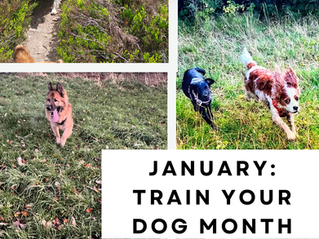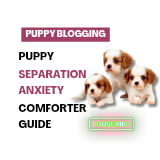Week 1: Bringing Your Puppy Home – Things to think about
- Oct 2, 2024
- 4 min read
Updated: Feb 22, 2025
Bringing a new puppy home is an exciting time, but it can also feel overwhelming. The first week is crucial for setting up a positive foundation. In this guide, we’ll cover everything you need to know to make your puppy’s transition smooth and stress-free.

Preparing for Your Puppy’s Arrival
Before your puppy steps through the door, preparation is key. Here’s what you need to have ready:
About Your Puppy
Before settling in, it’s important to know a few key details about your new puppy. Keeping track of their history, health, and care routine will ensure a smooth transition into their new home.
✅ What is their date of birth? – Puppies should not leave their mothers until a minimum of 8 weeks old. Any earlier and they will be missing out on massive learning opportunities from their mum and siblings. Even if the breeder says their mum has got fed up of them (which does not often happen, but breeders who want to avoid microchipping so there is no record of them breeding will say this) they can learn a lot from their siblings in the critical socialisation period.
✅ What food are they on? – Check what they’ve been eating so far and gradually transition them if you plan to change their diet. Sudden food changes can cause an upset stomach.
✅ What experiences have they had? – Have they been socialised with people, other dogs, or different environments? Understanding their background helps you introduce new experiences at the right pace.
✅ Have they had their inoculations? – If so, when is the next one due? Keep their vaccination records handy and book the next vet visit if needed.
✅ Are they wormed and flead? – Ask when their last flea and worm treatment was given and when the next one is due. Set reminders to stay on schedule.
✅ Microchip Details – It is law in the UK that all breeders microchip their puppies before they are 8 weeks of age. This means if your puppy is not microchipped with the breeder as their first registered owner, they are breaking the law, which should make you question what type of breeder they are.
📝 Tip: Keep a puppy record book to note important details, vet visits, and any changes in diet or routine.
Getting ready for Your Puppy’s Arrival
Before your puppy steps through the door, preparation is key. Here’s what you need to have ready:
✅ Safe Space: Choose a quiet, secure area where your puppy can settle. A crate or puppy pen is ideal for creating a den-like space.
✅ Puppy-Proofing: Remove hazards like electrical cords, toxic plants, and anything they might chew.
✅ Transport Home: Bring a secure crate or cat box if they are small enough or have a passenger hold the puppy safely on the journey. Expect a little whining or sickness – it’s all new to them!
✅ Food & Water Bowls: Place them in a quiet corner or their crate to help your puppy feel secure while eating.
✅ Bedding: Provide a soft, washable bed in their safe space for comfort.
✅ Toys & Chews: Have a mix of soft toys, chew toys, and interactive puzzles to keep them entertained.
✅ Collar, Lead & ID Tag: It’s a legal requirement in the UK for dogs to wear an ID tag with your contact details.
✅ Puppy Pads (Optional): If using puppy pads during toilet training, place them in a consistent spot.
📝 Tip: Set up a designated toilet area in the garden before your puppy arrives. This helps establish a routine from day one.
Setting Up a Safe Space
Your puppy will be adjusting to their new surroundings, so take it slow.
🏡 Introduce the Home Gradually: Let them explore one area at a time. A whole house can be overwhelming!
🛏 Create a Comfort Zone: Use blankets, a soft toy, or an item with their littermate’s scent for reassurance.
🐕 Supervision: Always watch your puppy closely—puppies explore with their mouths!
Establishing a Routine
Routine helps puppies feel secure and reduces stress. Here’s a basic schedule:
🕘 Feeding: Puppies need small, regular meals—usually three to four times a day. Stick to a set schedule to prevent tummy troubles.
🚽 Toilet Training: Take them out every hour, after meals, play, and naps. Reward with praise and treats when they get it right!
💤 Sleep & Rest: Puppies sleep a lot—up to 18 hours a day. Provide quiet time and avoid overstimulation. Lack of sleep can make a puppy seem over excitable and naughty.
Socialisation Starts Now
Even if your puppy isn’t fully vaccinated, safe socialisation is vital.
👨👩👧👦 Meeting People: Introduce them to different voices, ages, and appearances in a calm way.
🏠 Household Noises: Let them hear washing machines, TVs, and vacuum cleaners at a low level.
🐶 New Surfaces: Grass, carpet, tiles—help them build confidence with different textures underfoot.
Final Tips for the First Week
✔ Keep interactions positive—no punishment, just gentle redirection.
✔ Let them approach new things at their own pace.
✔ Start as you mean to go on—reward good behaviour early!
Your first week sets the stage for a confident, happy puppy. Next week, we’ll dive into teaching your puppy their name and building focus!










Comments